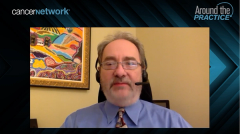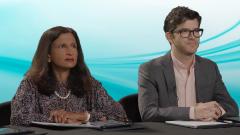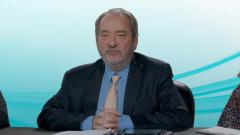
Final Thoughts on Transplant-Ineligible Patients with MM
Experts offer final thoughts on the treatment of newly diagnosed MM for patients that are transplant-ineligible.
Episodes in this series

Transcript:
Robert Z. Orlowski, MD: Any closing comments on transplant-ineligible patients before we move on?
C. Ola Landgren, MD: There are so many options similar to what we talked about for the patients who are candidates for stem cell transplant. There are many ways of doing it. In this group, because of comorbidities, frailty, and all that, it’s important to have the conversation with the patient. What’s the goal with the therapy? What does the patient want to achieve? If the patient says, “I want to do everything—I want to go hard on the disease,” maybe that’s a patient who should go for this 4-drug combination and the patient is fit. But if the patient says I don’t want to do that, pushing too hard could cause a lot of harm. Having that conversation is important for this population. It’s important always, but in particular for this group.
Amrita Krishnan, MD: I’m going to be the devil’s advocate and say that every patient is going to say the same thing. “What’s your goal?” They say, “My goal is to live longer,” right? What are you going to say to a frail person?
C. Ola Landgren, MD: As human beings, we want to live longer. But we also want to have a good quality of life. I’m not saying that what you said is wrong. But some patients also signal that they don’t want to have all these inconveniences, all these adverse effects, or things like that. These are very subtle things. You know what I’m talking about.
Amrita Krishnan, MD: I know what you’re talking about. I lean toward—and this is more my own personal bias—[saying], “You want a longer life, and you obviously want a good life, so try this first. If it causes you undue adverse effects, then let’s pull back.”
C. Ola Landgren, MD: There’s no problem if you change your mind. That happens in life every day. We change our minds on many things. Work with patients to see if it’s too toxic and then revisit it. Maybe we need to recalibrate the goal with the therapy.
Amrita Krishnan, MD: Exactly. I’m circling [back to] Ajay’s point that you get only that first shot, so you want to have that ability if someone is getting into renal failure because you haven’t been aggressive enough.
C. Ola Landgren, MD: To me, there’s job security for doctors in the future. You can’t just go to Google and find the right combination with cycles. This is why doctors are important: to have this conversation with the patient.
Transcript edited for clarity.
Newsletter
Stay up to date on recent advances in the multidisciplinary approach to cancer.










































